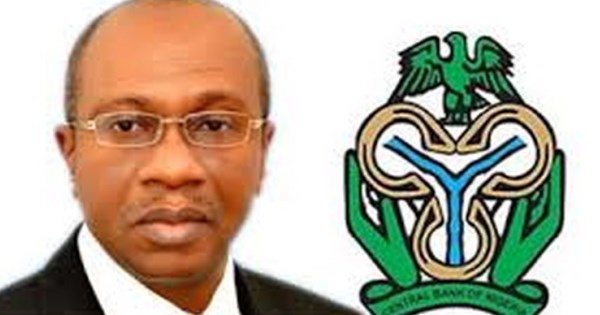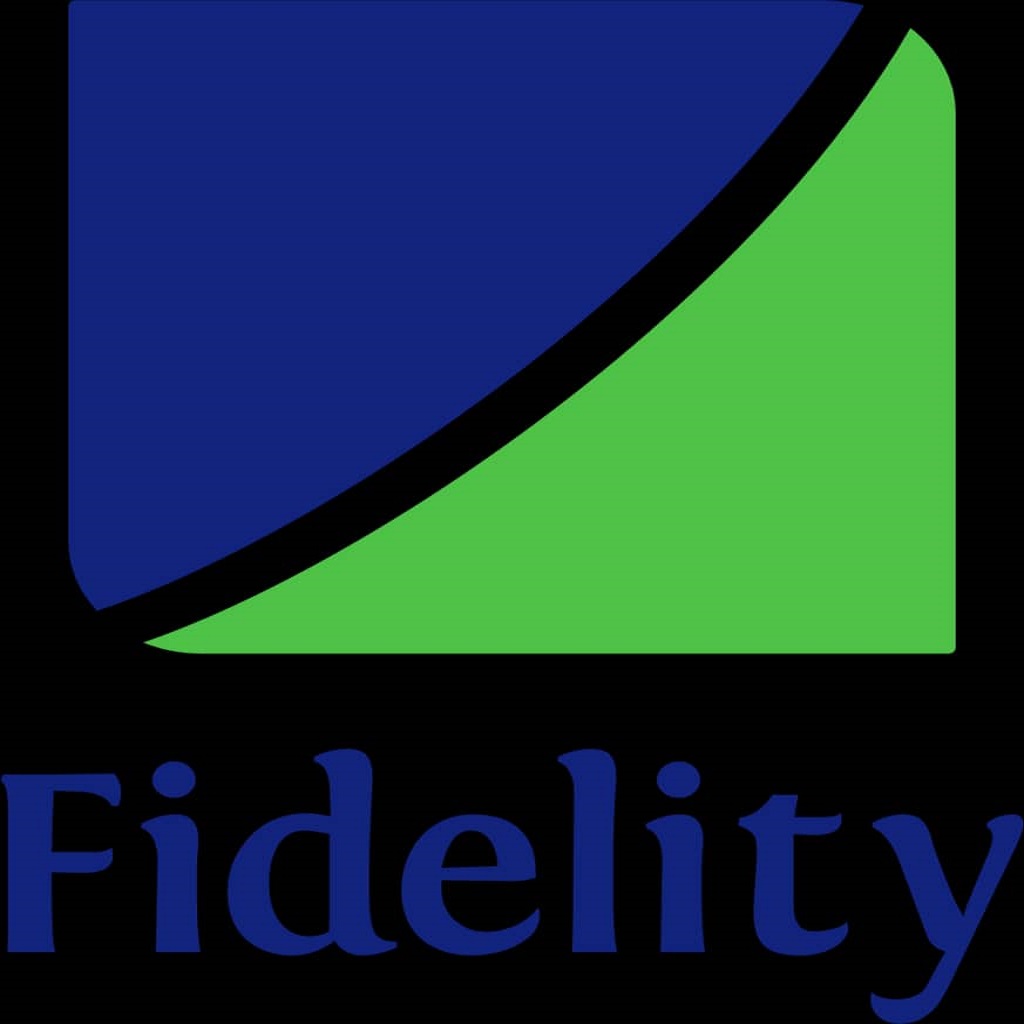E-Financial
CBN Fueling Inflation it Seeks to Curb – Report

Central Bank of Nigeria (CBN) continued financing of the government’s fiscal deficit is limiting the impact of its longest phase of monetary tightening since 2011 as rising money supply drives inflation to an almost 18-year high, according to a report in Bloomberg.

Annual inflation in Africa’s biggest economy quickened to 22% in March from 21.9% in February, the statistics agency said Saturday, even after the Central Bank of Nigeria hiked its benchmark rate by 650 basis points since May.
The hawkish stance has failed to curb a sustained rise in money supply and credit to the economy that are both at a record high.
While raising rates, policymakers have also funded budget shortfalls to the tune of 23.7 trillion naira ($51 billion) in eight years, putting pressure on money supply.
The monetization of the deficits, high global commodity prices, a weakening currency and floods that destroyed thousands of farmlands last year have all contributed to the upward trend in inflation, according to the World Bank.
Money supply, or M2, rose 18.3% in February from a year ago, while credit to businesses and consumers increased 16%.
Both contributed to push total money supply in the economy to 53.3 trillion naira and credit to the private sector to 41.8 trillion naira, the highest on record, according to data on the central bank’s website.
“CBN’s ways-and-means financing of Nigeria’s fiscal deficit has played some role in the expansion of monetary aggregates,” said Razia Khan, head of research for Africa and the Middle East at Standard Chartered Bank. “Even with rate-tightening, this might be a better gauge of the overall stance of monetary policy.”
Inflation has been above the central bank’s 9% ceiling for almost eight years. Governor Godwin Emefiele said at the monetary policy committee briefing in March that it will continue tightening, albeit moderately, until the differential between price growth and the key lending rate — at 18% — is closed.
Undermining goals
Consumer prices climbed an average 18.8% for 2022, a 21-year record, the World Bank said in its latest global report. Food inflation “is estimated to have pushed five million Nigerians into poverty,” it said.
The Abuja-based central bank is undermining its own goals by the “continued financing of government’s fiscal deficit,” as well as bank rules such as the “minimum loan-to-deposit ratio that banks must maintain to limit excessive cash-reserve-ratio debits,” said Ayodeji Dawodu, head of Africa sovereign and corporate credit research at BancTrust & Co.
The regulator demands that lenders must hold 32.5% of deposits as reserves, and extend at least 65% of the deposits as loans, to avoid penalties.
The central bank’s tightening measures “have not been effective,” Dawodu said.
E-Financial
Flutterwave Named in 2025 TIME100 Most Influential Companies List

Flutterwave, Africa’s leading payments technology company, has been named in the TIME100 Most Influential Companies List of 2025, marking its second appearance on the prestigious global ranking.

Previously honoured in 2021, Flutterwave joins industry giants such as Amazon, Netflix, and OpenAI in the TITANS category of the fifth-annual list, which recognizes companies driving significant global impact.
The selection process, led by TIME editors, evaluated nominees based on innovation, ambition, impact, and success, highlighting Flutterwave’s transformative role in the fintech sector.
Founded in 2016, Flutterwave has grown into a powerhouse facilitating seamless payments across Africa and beyond, empowering businesses and individuals in the digital economy.
Its solutions span critical sectors such as cross-border remittances, e-commerce, travel, payroll, and hospitality.
The company’s 2021 TIME100 recognition followed its impactful campaign to help businesses pivot online during the COVID-19 pandemic.
This year’s inclusion underscores Flutterwave’s sustained influence, with its technology now reaching over 34 African countries and expanding into new markets such as Bahrain, Turkey, and Saudi Arabia, supporting a leading global ride-hailing company’s operations.
Flutterwave’s flagship remittance product, SendApp by Flutterwave, has gained significant traction in the US, UK, and EU, offering faster and more affordable money transfers for the African diaspora.
In 2024, the company secured 20 additional licenses in the US, bringing its total to 34 and achieving near-complete coverage through strategic partnerships.
Flutterwave’s focus on profitability and market expansion, coupled with a strengthened executive team, has fuelled its growth, with nearly half of its customers receiving payments in new markets last year.
Olugbenga Agboola, founder and CEO, Flutterwave, expressed pride in the recognition, stating, “Being recognized by TIME once again is a true honour. It’s a testament to our team’s incredible work. We’re shaping Africa’s financial future and connecting the continent to the world.”
The accolade follows other recent honours, including topping Fast Company’s 2024 Most Innovative Companies list for Europe, the Middle East, and Africa, and earning a second consecutive ranking in the FXC Top 100 Cross-Border Payment Companies.
The TIME100 listing solidifies Flutterwave’s position as a global fintech leader, bridging Africa to the world through innovative payment solutions.
As the company continues to expand its reach and refine its growth strategy, its influence in transforming the financial landscape remains undeniable, setting a benchmark for innovation and connectivity in the digital economy.
E-Financial
Households Earning ₦250,000 Or Less Monthly Won’t Pay Tax – Oyedele

Taiwo Oyedele, chairman of the Presidential Committee on Fiscal Policy and Tax Reforms, has said that under the new tax laws, Nigerian households earning ₦250,000 or less per month are classified as poor and exempt from paying taxes.

The former tax leader at PriceWaterhouseCoopers (PwC) stated this on Channels Television’s Politics Today on Thursday, a few hours after President Bola Tinubu assented to four new tax bills.
Oyedele, whom the President appointed in July 2023, described his two-year stint as chair of the tax reform committee as both eventful and challenging.
He said that the objectives of the new laws, which would take effect from January 2026, were not intended to increase taxes but to stimulate economic activity in the country and track tax evaders.
President Bola Tinubu sits as he signs four new tax bills into law at the Presidential Villa in Abuja on Thursday, June 26, 2025 in the presence of top government officials. C
Oyedele stated that the new laws would also protect businesses and ensure that the government doesn’t tax poverty, adding that the new laws are efficiency-driven, growth-focused, and people-centric.
“This tax law will not give you cash in your pocket, but at least it won’t take your cash away if you are poor.”
He said nobody earning below ₦250,000 would have to pay taxes because they don’t even have enough.
“We have eliminated the tax component for people at the bottom, we have reduced for people at the middle, and we have increased slightly for people at the top.
“That middle, we estimated it at about ₦1.8 to ₦2m a month. If you are earning that amount and below, your tax will not be zero but it will reduce from what you are paying today,” he stated, noting that those who earn this amount are about 5% of the total Nigerian population.
The tax boss said to arrive at a decision, his committee debated the poverty line of an average Nigerian.
Oyedele said, “We debated this question; we said: ‘Who is a poor person in Nigeria?
“First, we started with data like the World Bank and the UN will tell you two dollars, fifteen cents a day per person means you are at the poverty line but there are people who do not earn two dollars a day but they are not poor because they produce the food that they eat and they do not pay for transportation. I lived and grew up in the village.
“So, we had to factor that in. We drew our own (poverty) line for Nigeria on the basis of an average of five people per family: two people working if they are lucky, taking care of the five.
“When we did the maths, it gave us an amount, and that was what we used in determining the income below which nobody should pay taxes.
“We came up with a ₦120,000 or ₦130,000 per two people working in a household of five. If the earnings are about ₦250,000, they can take care of themselves. Of course, they are not going to have luxury, but at least they can take care of themselves. They are poor, and they shouldn’t pay taxes.”
“When we did the maths, it gave us an amount, and that was what we used in determining the income below which nobody should pay taxes.
“We came up with a ₦120,000 or ₦130,000 per two people working in a household of five. If the earnings are about ₦250,000, they can take care of themselves. Of course, they are not going to have luxury, but at least they can take care of themselves. They are poor, and they shouldn’t pay taxes.”
Oyedele stated that Nigeria currently collects only about 30% of what the country should be receiving in taxes, noting that the objective of the new tax laws is to close the 70% gap.
E-Financial
Fidelity Bank Joins Trillion-Naira Club as Market Value Hits ₦1 Trillion

The Cable NG reports that the market capitalisation of Fidelity Bank has crossed the N1 trillion mark as the share value of the company appreciated by 1.27 percent at the close of trading.

According data from the Nigerian Exchange Group (NGX), the bank’s market capitalisation hit N1 trillion after its share price rose from N19.75 on Tuesday to N20 on Wednesday.
The increase moved the company’s valuation from N991.6 billion to N1 trillion.
With the development, Fidelity Bank joins the list of financial institutions with a market capitalisation of over N1 trillion.
The companies are Zenith Bank, Access Bank, United Bank of Africa (UBA), Guaranty Trust Bank (GTB), and First Bank.
On May 21, Nneka Onyeali-Ikpe, the managing director (MD) and chief executive officer (CEO) of Fidelity Bank, acquired an additional 18 million shares in the bank.
Two days later, Onyeali-Ikpe bought additional 2 million units of shares in the bank.
According to a regulatory filing on the NGX, the shares were acquired on May 22, at N18.6 each — amounting to a total value of N37.2 million.
The acquisitions increased her shareholding in the bank to 114.64 million shares — from 94.64 million held as at December 31, 2024.
In its latest financial performance report, Fidelity Bank said it reported a 167.8 percent year-on-year increase in profit before tax (PBT), which increased to N105.8 billion in the first quarter (Q1) of 2025.

 General News2 days ago
General News2 days agoOpenAI Unveils New AI Agent for Software Developers

 Telecom2 days ago
Telecom2 days ago15 African Startups Using AI Selected for Google Accelerator Cohort 9

 Telecom2 days ago
Telecom2 days agoMTN Nigeria Receives UN Women Award for Empowering Women Nationwide

 E-Financial1 day ago
E-Financial1 day agoFidelity Bank Clears the Air: MD Not Linked to Woobs Case

 Telecom2 days ago
Telecom2 days agoUS Bans Use of WhatsApp on Official Devices over Security Concerns

 Telecom2 days ago
Telecom2 days agoMTN Nigeria Launches “Mega Billion Promo” to Reward Customer Loyalty and Drive Financial Inclusion

 Telecom2 days ago
Telecom2 days agoMTN Nigeria Donates Medical, Digital Equipment to Lagos Primary Healthcare Centre

 General News1 day ago
General News1 day agoSEC Advocates for Advanced Financial Inclusion by 2030


























